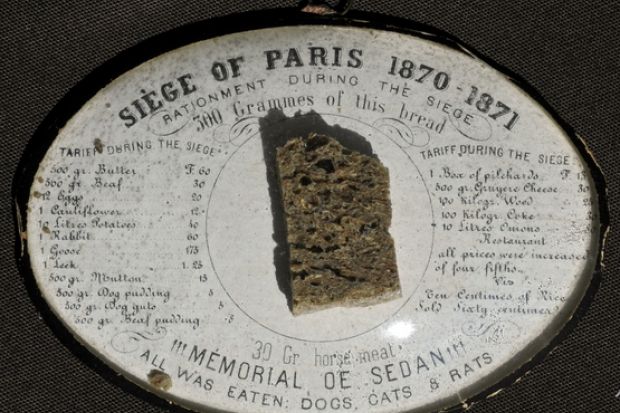The Siege of Paris, the climax of the Franco-Prussian War of 1870- 71, marked one of the turning points in European history.
It led to a disastrous French defeat, the loss of the territory of Alsace-Lorraine and the creation of a united German Empire under Wilhelm I.
The Prussian command made a deliberate decision not to launch a direct assault, since it wanted to avoid an early surrender that would leave the French Army intact. Instead, it determined to starve the city into submission.
The inhabitants, surrounded from 19 September 1870 until Paris' surrender on 28 January 1871, were forced to eat cats, rats, dogs, and even the two elephants from the Paris Zoo.
This memorial, designed to be hung on a wall, incorporates a piece of bread from the siege and lists the prices of food - including "dog guts" and "dog pudding", as well as Gruyere, pilchards and leeks.
When it was offered to the Nottingham public library in 1960, it was suggested it was better suited to the University of Nottingham's Special Collections, along with other material relating to the siege, such as the papers of the 19th-century diplomat Sir Andrew Buchanan.
Send suggestions for this series on the sector's treasures, oddities and curiosities to: matthew.reisz@tsleducation.com.
Register to continue
Why register?
- Registration is free and only takes a moment
- Once registered, you can read 3 articles a month
- Sign up for our newsletter
Subscribe
Or subscribe for unlimited access to:
- Unlimited access to news, views, insights & reviews
- Digital editions
- Digital access to THE’s university and college rankings analysis
Already registered or a current subscriber?
